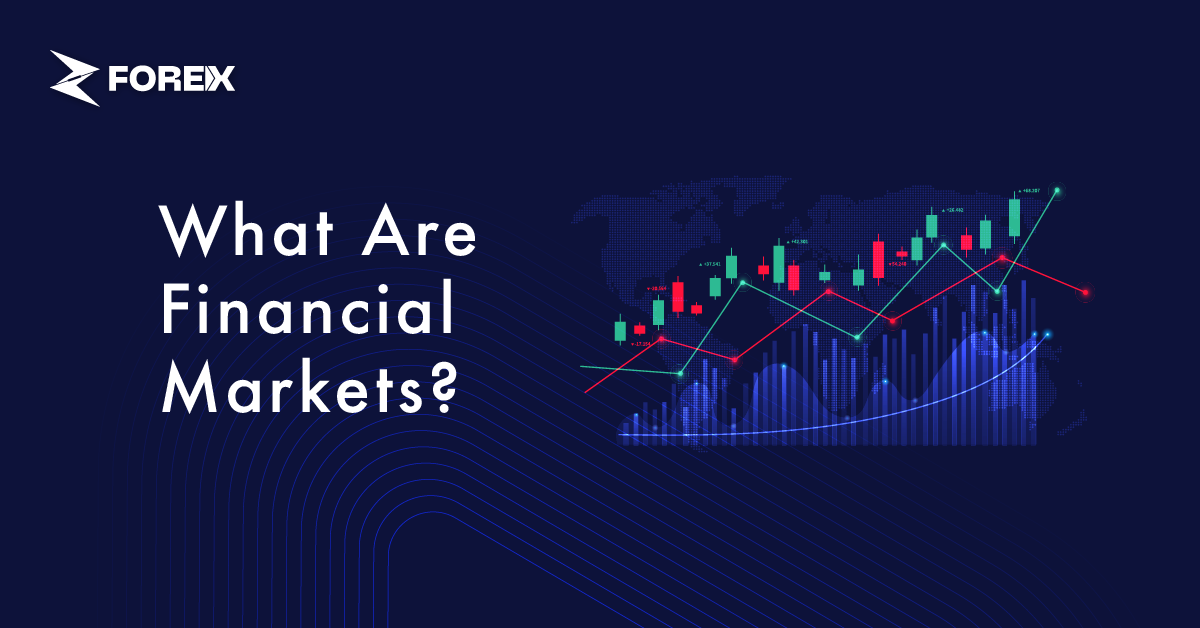
Financial markets are places where people buy and sell financial assets like stocks, bonds, currencies, and derivatives. They help move money from those who save to those who need it, promoting investment and setting prices for financial assets. To ensure fairness and transparency, government agencies regulate these markets, making them reliable and beneficial for investors.
Here, we provide a brief overview of the different types of financial markets to help you understand their variations.
These are venues where shares of publicly held companies are issued and traded. The stock market is one of the key factors for raising capital for businesses and offering investors a chance to own a portion of a company and potentially earn dividends and capital gains. Major stock exchanges, including the New York Stock Exchange (NYSE) and NASDAQ, help businesses raise money by selling ownership stakes to investors.
These markets provide a way to invest, allowing shares to be easily bought and sold, which helps determine their value. They include a wide range of participants, from individual investors to large institutions. Indices like the S&P 500 track groups of stocks to show how the market is performing. Regulatory bodies ensure these markets operate fairly and transparently to protect investors.
Bond markets, also known as “debt markets”, are places involving the issuance and trading of bonds, which are loans made to companies or governments to help raise funds for various projects and provide a steady income stream for investors. Most participants include individual investors, pension funds, and insurance companies who also help set interest rates in the economy. Bondholders who buy a bond lend money to the issuer in exchange for regular interest payments and the return of the bond's value at maturity.
In the trading of raw materials and primary products such as gold, oil, and agricultural products, here we have commodity markets. These markets allow producers and consumers to trade physical goods and manage the increase of price risks through stabilized prices by supply-demand matching.
Commodity markets can be divided into two categories: spot markets and futures markets. In spot markets, the commodity is delivered immediately. In futures markets, contracts are bought and sold for future delivery. Again, regulatory bodies ensure that these markets maintain fairly and transparently, to protect participants' benefits and maintain market integrity.
Forex is the largest and most liquid financial market in the world, where currencies from different countries are traded. It operates 24 hours a day, five days a week, allowing businesses, governments, and individuals to execute international trades and investments by exchanging currencies. Most of the trades are financial institutions, banks, corporations, and individual traders. Forex helps to determine exchange rates based on supply and demand.
These markets involve financial instruments like futures, options, and swaps that derive their value from underlying assets such as stocks, bonds, commodities, or currencies. Derivatives often allow investors to hedge against risks or for speculative purposes. Futures, options, and swaps are among the most common derivatives. Having financial institutions, corporations, and individual traders, derivatives markets aid the financial system by enabling risk management and price discovery.
Financial markets are places where you can exchange money to trade, help businesses to grow and the economy to improve.
Why are financial markets important?
Financial markets are important because they help businesses get the funds they need to grow and create jobs. They also offer ways for people to invest and grow their savings.
What types of financial markets are there?
There are several types, including stock markets (for buying shares of companies), bond markets (for lending money to companies or governments), and foreign exchange markets (for trading currencies).
Who participates in financial markets?
Many people participate, including individual investors, banks, companies, and government institutions. They all trade financial assets to achieve their financial goals.
How do financial markets work?
Financial markets work by matching buyers and sellers of financial assets. Prices are determined by supply and demand, which helps to set the value of these assets.
What are the benefits of financial markets?
Financial markets provide liquidity, allowing assets to be quickly bought and sold. They also help in price discovery, showing the true value of assets. Additionally, they offer tools for managing financial risks.
What are the risks of financial markets?
Risks include dynamism in the market, where prices can change rapidly, and potential losses if investments do not perform well. It is important to understand these risks before investing.
How are financial markets regulated?
Financial markets are regulated by government agencies to ensure fair trading practices and protect investors. These regulations help maintain market integrity and stability.
 Silver Rally Ahead? Supply Deficit Meets Rising Demand
Silver Rally Ahead? Supply Deficit Meets Rising Demand
A new silver rally may be forming as supply deficits deepen and China’s demand grows. Here’s what is driving the momentum.
Detail Fed Rate Cuts 2026: How to Position Now
Fed Rate Cuts 2026: How to Position Now
Fed rate cuts in 2026 could reshape markets. See expectations, asset impact, and positioning strategies for bonds, gold, stocks, and USD.
Detail Analyzing the U.S. Labor Market Outlook for 2026
Analyzing the U.S. Labor Market Outlook for 2026
Year’s first jobs report looked reassuring. A closer breakdown, however, tells a more layered story about the direction of the labor market.
DetailThen Join Our Telegram Channel and Subscribe Our Trading Signals Newsletter for Free!
Join Us On Telegram!